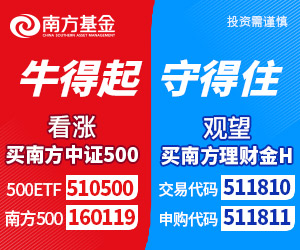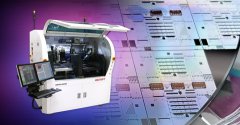Data from the ongoing Phase II open-label extension (OLE) study of evobrutinib show sustained clinical efficacy and a safety profile that remains consistent with that previously reported over five years of therapy - the longest follow-up of any Bruton’s tyrosine kinase inhibitor (BTKi) in multiple sclerosis (MS) studies
Additional Phase II OLE data show significant and clinically meaningful improvements on mental health and quality of life measures in study participants with relapsing multiple sclerosis (RMS)
Evobrutinib is an investigational highly selective, oral, central nervous system (CNS)-penetrant BTKi with the potential to transform the RMS treatment landscape by targeting smouldering MS on top of peripheral nervous system inflammation to address both relapses and disability progression independent of relapses
Not intended for UK and U.S. based media
Merck, a leading science and technology company, today announced new five-year data from the open-label extension (OLE) of the Phase II clinical trial, which demonstrated that people with relapsing multiple sclerosis (RMS) treated with investigational BTK inhibitor (BTKi) evobrutinib continued to have low annualized relapse rates (ARR), with a high proportion of patients showing no evidence of clinical worsening. Additional patient-reported data from the study showed statistically significant and clinically meaningful improvements in mental health and vitality, which is closely related to fatigue. These data, presented at the 9th Joint ECTRIMS-ACTRIMS meeting, may indicate the long-term positive benefits of evobrutinib for people with RMS.
“The data presented at ECTRIMS-ACTRIMS provide further insights into the sustained safety and efficacy profile of evobrutinib and showcase its potential to reduce fatigue in people with RMS, a common, often debilitating symptom that can impact quality of life,” said Jan Klatt, Senior Vice President, Head of Development Unit Neurology & Immunology at Merck. “Evobrutinib also has the potential to directly address smouldering inflammation in RMS, a previously underestimated contributor to disease progression that is insufficiently addressed with existing treatments. Together, these data continue to reinforce our confidence in evobrutinib in addressing the major unmet need seen with current RMS treatment options.”
Data from the ongoing Phase II OLE trial showed sustained clinical efficacy and safety over five years of treatment with evobrutinib, with no evidence of clinical worsening (defined as being free from relapses and disability progression) in 87.1% of patients in year five. During the OLE, patients were switched from evobrutinib 75 mg once-daily to 75 mg twice-daily resulting in additional ARR reduction. The overall pooled ARR remained low at 0.11.
No new safety signals were observed in the OLE and evobrutinib continued to show consistent tolerability up to five years of treatment. Overall, treatment emergent adverse events (TEAEs) were mild/moderate in the OLE, with 3.3% (n=7) of patients with RMS experiencing a serious TEAE. Collectively, the findings may indicate sustained benefit of long-term twice-daily dosing, and the safety profile remains consistent with that previously reported.
Additional data from the double-blind period of the Phase II trial demonstrated patients treated with evobrutinib 75 mg twice-daily showed significant and clinically meaningful improvements of mental health and vitality up to 48 weeks vs. placebo and evobrutinib 25 mg once-daily. Improvements were measured by the 36-Item Short Form Survey (SF-36). As part of the study, SF-36 vitality scores were converted to the Patient Reported Outcome Measurement Information System (PROMIS) Fatigue T-scores. Overall, the treatment benefit on PROMIS Fatigue T-scores of evobrutinib up to week 48 in the double-blind period for those taking 75 mg twice-daily suggests evobrutinib may mitigate fatigue, an issue that can greatly impact the quality of life for those living with RMS.
To keep up to date with our activities at ECTRIMS-ACTRIMS along with future data and information, please visit merckneurology.com/newsroom or follow us on Twitter @MerckHealthcare and LinkedIn: Healthcare Business of Merck. To view our abstracts & posters presented at the 9th Joint ECTRIMS-ACTRIMS meeting, please visit https://ectrims.eu/msmilan2023-abstracts/.
About Evobrutinib
Evobrutinib is an oral, CNS-penetrating, highly selective inhibitor of Bruton’s tyrosine kinase (BTK) in clinical development as a potential treatment for relapsing multiple sclerosis (RMS). It is the first BTK inhibitor to demonstrate clinical efficacy in the largest Phase II study with follow-up beyond three years as well as demonstrate an impact on early biomarkers of ongoing central inflammation that correlate with disease progression, including slowly expanding lesions (SEL) volume and levels of blood neurofilament light chain protein (NfL). Evobrutinib is designed to modulate B cell responses such as proliferation and antibody and cytokine release, as well as modulate macrophage/microglia activation. During Phase II, the BTKi dose finding study demonstrated that BID dosing achieved maximal efficacy with >95% BTK occupancy maintained in 98% of patients before the next dose. Evobrutinib is currently under clinical investigation and is not approved for any use anywhere in the world.
About the Open-Label Extension (OLE) Phase II Clinical Trial with Evobrutinib
In the 48-week double-blind period (DBP), patients with RMS were assigned to one of five treatment groups: placebo (switching to 25mg once-daily evobrutinib after 24 weeks), 25mg or 75mg once-daily evobrutinib, 75mg twice-daily evobrutinib, or open-label dimethyl fumarate (120mg twice daily for the first week and 240mg twice daily thereafter). At week 48, patients could enter the OLE and received evobrutinib 75mg once daily for a mean time of 49.8 weeks before switching to 75mg twice daily for the remainder of the OLE.
About Multiple Sclerosis
Multiple sclerosis (MS) is a chronic, inflammatory condition of the central nervous system and is the most common non-traumatic, disabling neurological disease in young adults. It is estimated that approximately 2.9 million people have MS worldwide. While symptoms can vary, the most common symptoms of MS include blurred vision, numbness or tingling in the limbs and problems with strength and coordination. The relapsing forms of MS are the most common.
Merck in Neurology and Immunology
Merck has a long-standing legacy in neurology and immunology, with significant R&D and commercial experience in multiple sclerosis (MS). The company’s current MS portfolio includes two products for the treatment of relapsing MS – Rebif® (interferon beta-1a) and MAVENCLAD® (cladribine tablets). Merck aims to improve the lives of patients by addressing areas of unmet medical needs. In addition to Merck’s commitment to MS, the company also has a pipeline focusing on discovering new therapies that have potential in other neuroinflammatory and immune-mediated diseases, including systemic lupus erythematosus (SLE), generalized myasthenia gravis (gMG) and neuromyelitis optica spectrum disorder (NMOSD).
All Merck press releases are distributed by email at the same time they become available on the Merck website. Please go to www.merckgroup.com/subscribe to register online, change your selection or discontinue this service.
About Merck
Merck, a leading science and technology company, operates across life science, healthcare and electronics. Around 60,000 employees work to make a positive difference to millions of people’s lives every day by creating more joyful and sustainable ways to live. From providing products and services that accelerate drug development and manufacturing as well as discovering unique ways to treat the most challenging diseases to enabling the intelligence of devices – the company is everywhere. In 2021, Merck generated sales of € 19.7 billion in 66 countries.
Scientific exploration and responsible entrepreneurship have been key to Merck’s technological and scientific advances. This is how Merck has thrived since its founding in 1668. The founding family remains the majority owner of the publicly listed company. Merck holds the global rights to the Merck name and brand. The only exceptions are the United States and Canada, where the business sectors of Merck operate as EMD Serono in healthcare, MilliporeSigma in life science and EMD Electronics.
责任编辑: admin
珠海都市网所有文字、图片、视频、音频等资料均来自互联网,不代表本站赞同其观点,本站亦不为其版权负责。相关作品的原创性、文中陈述文字以及内容数据庞杂本站无法一一核实,如果您发现本网站上有侵犯您的合法权益的内容,请联系我们,本网站将立即予以删除!

焦点新闻
热图要闻
热门排行
- PLDA宣布推出Robust Verification Toolset,以提
- Ludovic Blanquet Joins smartTrade as Chief Pro
- Wolters Kluwer FRR Launches OneSumX for Risk M
- 香港旅遊發展局訂立統一衞生防疫指引 向旅客傳遞
- Nanboya香港辦事處遷至佐敦,首個海外採購辦公室
- GSMA Announces Date Changes for its MWC21 Seri
- 罗克韦尔自动化收购网络安全公司
- Standard Digital Group Is Now Accepting Online
- Nanboya香港辦事處遷至佐敦,首個海外採購辦公室
- Standard Digital Group Is Now Accepting Online







